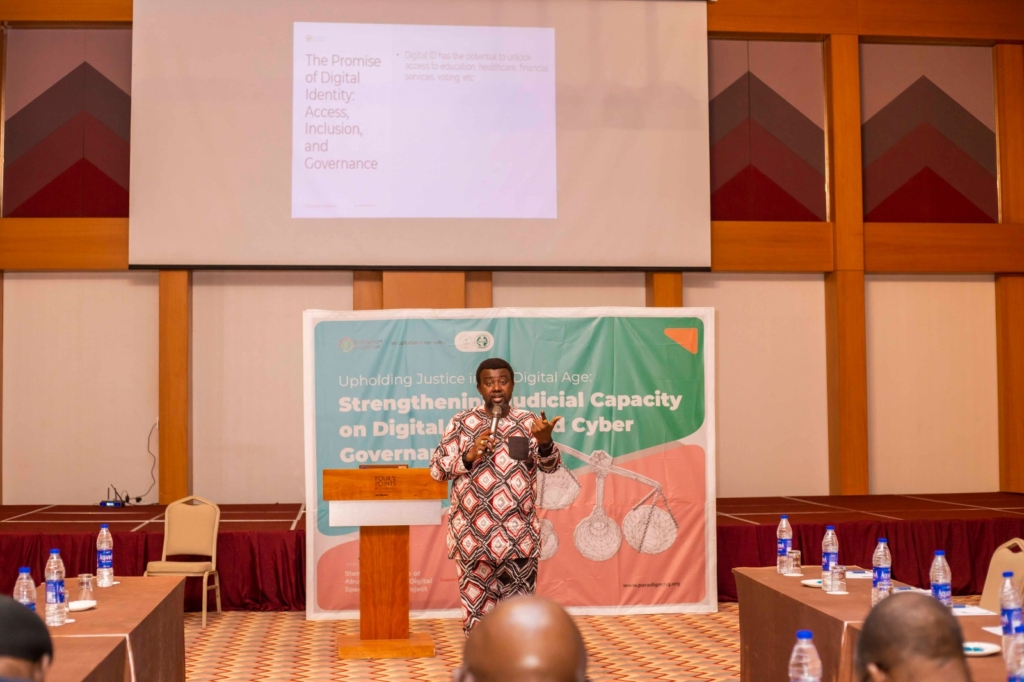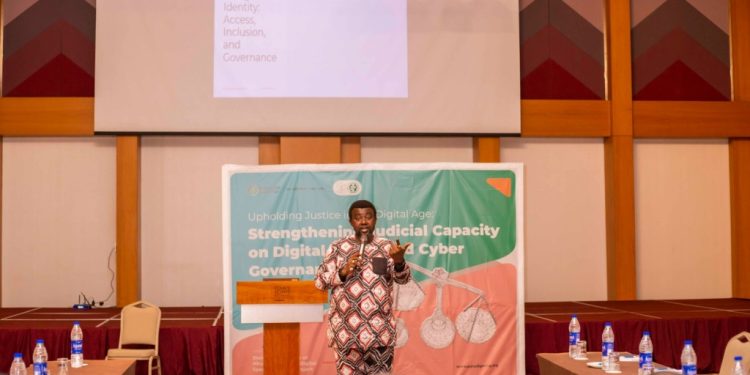Judges of Nigeria’s Federal High Court and National Industrial Court have officially endorsed the Ikot Ekpene Declaration, a landmark commitment to align the country’s judicial practices with global standards on digital rights protection.
The declaration, supported by officials from the National Human Rights Commission and the National Judicial Institute, sets forth guiding principles to uphold justice in the digital age, focusing on protecting rights such as privacy, freedom of expression, and access to information.
The move follows a high-level judicial capacity-building workshop titled “Upholding Justice in the Digital Age: Strengthening Judicial Capacity on Digital Rights and Cyber Governance,” organised by Paradigm Initiative (PIN) with support from the Kingdom of the Netherlands under the STANDS (Stemming the Tide of Abuse in Nigeria’s Digital Space) Project.

The workshop underscored the urgent need for Nigeria’s judiciary to respond to the slow pace of digital rights legislation by ensuring justice is delivered in line with evolving legal standards. Participants were reminded of the judiciary’s role in shaping a fair legal environment where digital rights are recognised and enforced.
Administrator of the National Judicial Institute, Justice Salisu Garba Abdullahi, opened the event by stressing the need for judicial officers to approach digital issues with integrity and foresight. He called on judges to administer justice in a way that honours constitutional tenets and effectively addresses the challenges and opportunities of a growing digital society.
Executive Director of Paradigm Initiative, ‘Gbenga Sesan, highlighted the importance of judicial oversight in a time of increasing digital manipulation. “The marriage between digital opportunities and digital economies is strengthened by judicial oversight and the realities of our time,” he noted. “We trust judges to understand the issues of our time and make the right decisions.”
Khadijah El-Usman, Senior Officer for Anglophone West Africa at PIN, also acknowledged the pivotal role of the judiciary in promoting digital rights and justice. “We are especially thankful to our partners, the Netherlands Embassy, for supporting conversations like this,” she said.
The Ikot Ekpene Declaration outlines a range of recommendations for judicial officers, including ensuring clarity and consistency in judicial reasoning, upholding the Rule of Law, necessity, and proportionality when restricting rights, especially digital rights.
Others are expanding access to justice for vulnerable groups, including women, children, and persons with disabilities, and prioritising digital transformation of the judiciary by ensuring adequate resources.
Through its regional offices in Cameroon, Kenya, Nigeria, Senegal, Zambia, and Zimbabwe, PIN has impacted over 150,000 youth through digital inclusion and digital rights programs. Initiatives such as the LIFE training programme offer youth skills in ICT, financial literacy, and entrepreneurship.
PIN has also developed digital platforms—Ayeta, Londa, and Ripoti—to educate citizens and report digital rights violations. These tools provide vital resources for defending digital rights in Africa.
DISCLAIMER: The Views, Comments, Opinions, Contributions and Statements made by Readers and Contributors on this platform do not necessarily represent the views or policy of Multimedia Group Limited.
DISCLAIMER: The Views, Comments, Opinions, Contributions and Statements made by Readers and Contributors on this platform do not necessarily represent the views or policy of Multimedia Group Limited.
- President Commissions 36.5 Million Dollars Hospital In The Tain District
- You Will Not Go Free For Killing An Hard Working MP – Akufo-Addo To MP’s Killer
- I Will Lead You To Victory – Ato Forson Assures NDC Supporters
Visit Our Social Media for More




